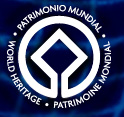A number of human diseases are caused by mutations in genes in our mitochondria: cytochrome b 12S rRNA ATP synthase subunits of NADH dehydrogenase several tRNA genes Although many different organs may be affected, disorders of the brain and muscles are the most common. Perhaps this reflects the great demand for energy of both these organs. Some of these disorders are inherited in the germline. In every case, the mutant gene is received from the mother because none of the mitochondria in sperm survives in the fertilized egg. Other disorders are somatic; that is, the mutation occurs in the somatic tissues of the individual. Example: exercise intolerance A number of humans who suffer from easily-fatigued muscles turn out to have a mutations in their cytochrome b gene. Curiously, only the mitochondria in their muscles have the mutation; the mtDNA of their other tissues is normal. Presumably, very early in their embryonic development, a mutation occurred in a cytochrome b gene in the mitochondrion of a cell destined to produce their muscles. The severity of mitochondrial diseases varies greatly. The reason for this is probably the extensive mixing of mutant DNA and normal DNA in the mitochondria as they fuse with one another. A mixture of both is called heteroplasmy. The higher the ratio of mutant to normal, the greater the severity of the disease. In fact by chance alone, cells can on occasion end up with all their mitochondria carrying all-mutant genomes — a condition called homoplasmy (a phenomenon resembling genetic drift).
DIP JYOTI CHAKRABORTY
Subscribe to:
Post Comments (Atom)



No comments:
Post a Comment